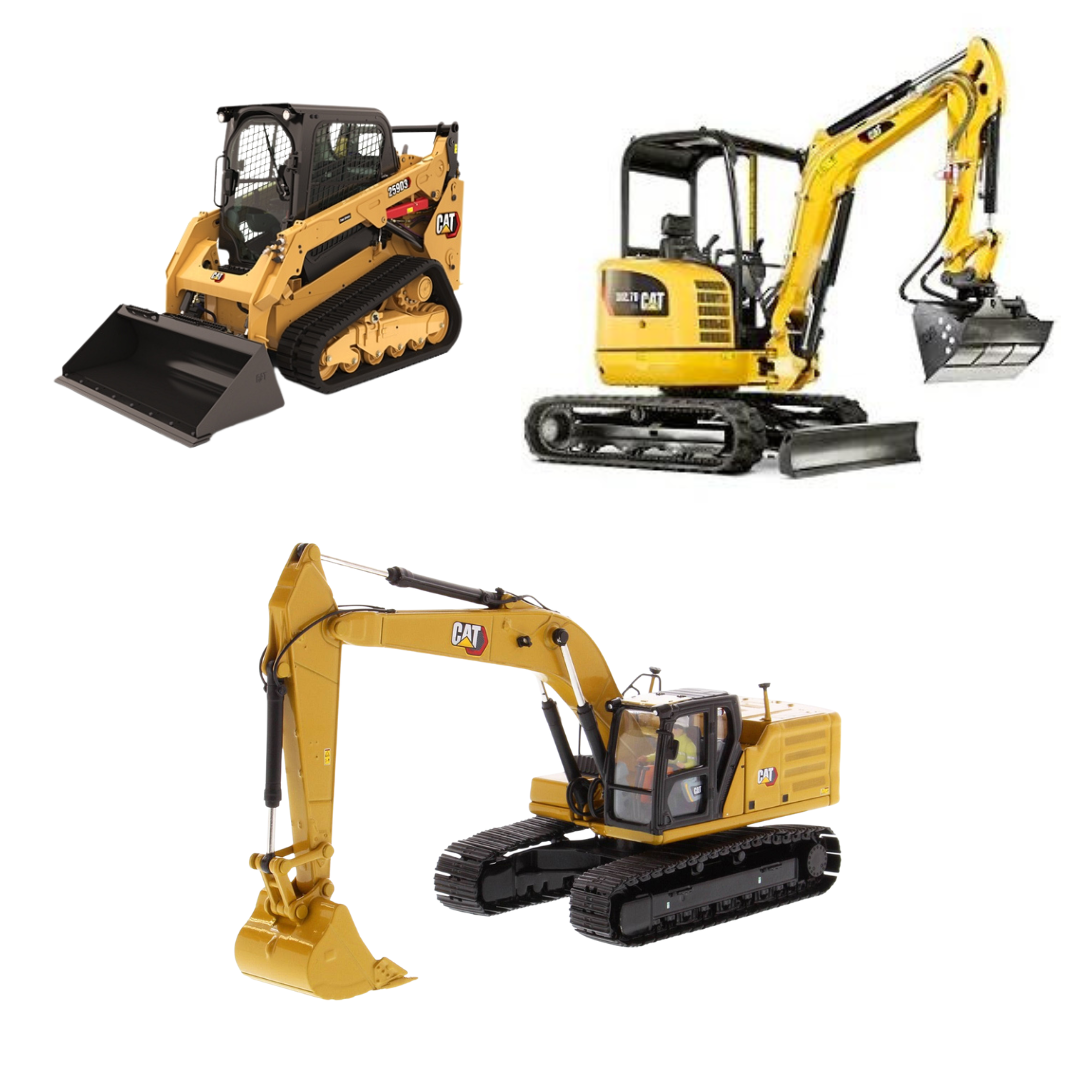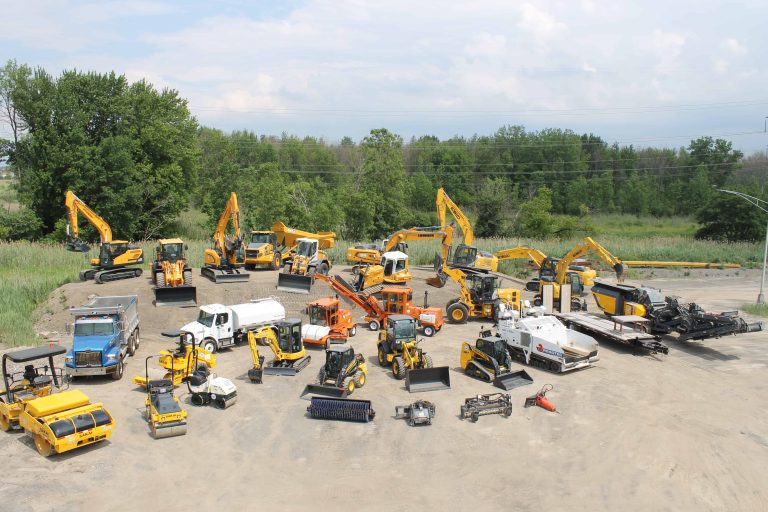Construction Equipment Rentals: Sturdy Equipment for Your Projects
Construction Equipment Rentals: Sturdy Equipment for Your Projects
Blog Article
Optimize Your Budget by Comprehending the Prices Related To Construction Tools Services
Comprehending the full scope of prices linked with construction devices rentals is crucial for optimizing your budget. While the first rental fee may seem simple, countless extra expenses-- such as transport, gas additional charges, and upkeep-- can promptly collect, impacting your monetary preparation. Moreover, recognizing different charges and the intricacies of rental agreements can help prevent unforeseen financial concerns. What approaches can be used to successfully handle these costs and guarantee a much more efficient rental experience?
Review of Rental Costs
When taking into consideration building equipment services, understanding the connected costs is paramount for effective budgeting and project preparation. Rental expenses can vary dramatically based on several variables, consisting of equipment kind, period of service, and place. The initial rental cost usually shows the equipment's market need and its connected functional abilities, influencing the total expenditure.
In addition to the base rental rate, secondary costs may develop, such as transport costs, gas surcharges, and maintenance costs. It is necessary to represent these added costs to precisely evaluate the complete cost of renting out devices. The rental duration can influence pricing; longer rentals might qualify for affordable rates, while short-term rentals may incur higher daily charges.

Break Down of Rental Prices
An extensive understanding of rental prices is crucial for professionals and task managers aiming to maximize their spending plans. Rental prices for building and construction equipment usually include a number of elements, including base prices, time-based costs, and usage costs.
Base rates are the core charges connected with the service of the tools, usually figured out by the kind and size of the machinery. These prices can vary significantly, influenced by variables such as equipment need, schedule, and regional market fads. Time-based costs, which might be daily, weekly, or monthly, offer to fit various project timelines and rental durations.
In addition, rental prices may consist of usage charges, which apply when tools is utilized beyond a specified threshold, guaranteeing that the rental business can account for wear and tear. Seasonal demand fluctuations can likewise affect rental rates, with peak construction periods normally regulating greater rates.
In addition, understanding the rental business's policies pertaining to upkeep and insurance coverage can provide more insight into the general expense structure. By examining these elements, specialists can make enlightened choices, guaranteeing the selection of rental tools straightens with both task demands and budget plan restrictions.
Added Fees to Take Into Consideration
Recognizing the intricacies of added costs is essential for professionals to handle their total rental costs successfully. Beyond the typical rental rates, different additional charges can considerably influence the overall expense of equipment leasing. These costs frequently include distribution and pickup fees, which can differ based on range and logistics associated with moving the devices to and from the work website.
Furthermore, some rental companies may impose fuel surcharges if the devices is returned with much less fuel than when leased. It is likewise vital to know potential cleansing charges, specifically for specific devices that needs extensive upkeep after usage.

Thoroughly examining the rental contract and clearing up these added fees in advance can help professionals make certain and avoid unforeseen costs that budgets remain intact throughout the task lifecycle.
Repair And Maintenance Expenses
Normal upkeep and repair service expenses are often overlooked aspects that can dramatically influence the general expense of building and construction devices rentals. When renting out equipment, it is essential to think about not only the rental fees but likewise the possible expenses related to maintaining the equipment in optimal operating problem.
Lots of rental business include basic upkeep as component of the rental arrangement; nevertheless, a lot more unanticipated breakdowns or considerable repair work can result in added expenditures. It's necessary to assess the rental contract thoroughly to comprehend what maintenance services are covered and what duties fall on the renter.
In addition, tools that is not properly maintained can cause inefficiencies at work site, possibly creating delays and enhancing task prices. To alleviate these threats, it is suggested to conduct regular inspections and preserve open interaction with the rental supplier relating to any kind of read what he said issues that develop throughout use.
Insurance Policy and Obligation Prices
Insurance coverage and responsibility prices are crucial components that can considerably affect the overall expenditure of building and construction tools rentals (forklift rental). These costs ensure that both the rental business and the client are secured from prospective economic losses arising from mishaps, damage, or burglary during the rental period

In addition, customers ought to be aware of any deductibles or exemptions in the insurance coverage, as these can affect prospective out-of-pocket expenditures. Understanding the conditions of any type of insurance policy coverage is crucial to stay clear of unanticipated costs. Inevitably, budgeting for insurance policy and responsibility expenses can help guarantee a smoother rental experience and protect against financial risks linked with building and construction projects.
Conclusion
In conclusion, a comprehensive understanding of the prices associated with building and construction equipment leasings is essential for efficient budget plan management. Inevitably, informed decision-making regarding equipment rentals adds to the total success of building undertakings.
Rental costs can differ dramatically based on a number of factors, including devices kind, duration of service, and place (construction equipment rentals). The rental period can impact pricing; longer services might certify for discounted prices, while short-term rentals could incur greater daily charges
By performing detailed research study and engaging with respectable rental companies, specialists can efficiently navigate the complexities of rental get more pricing, eventually maximizing their economic resources.
Beyond the conventional rental prices, various additional charges can dramatically influence the total expense of equipment rental. Rental business usually supply liability insurance policy that covers injuries to 3rd events or damage to residential property, while equipment damage insurance policy can cover the price of repair work or substitute if the rented out tools is damaged.
Report this page